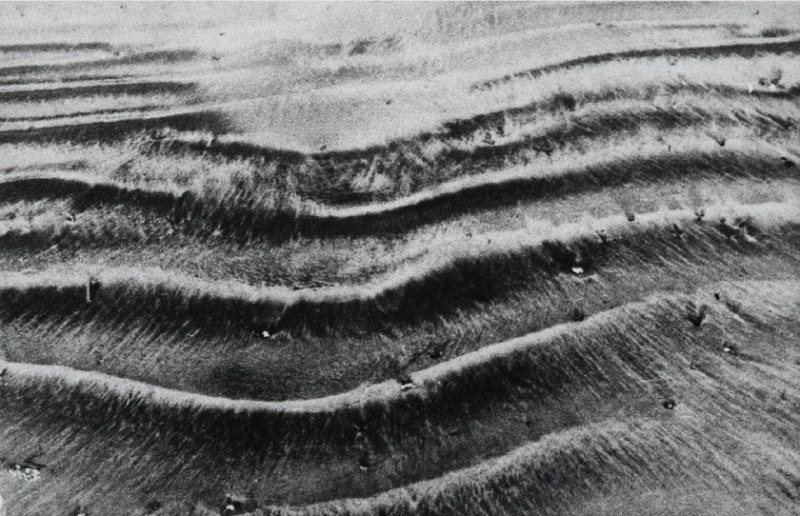
In her landmark essay on the grid, Rosalind Krauss outlined the form’s reductive modernist ontology, and its exemplary capacity to align the work of art with its material support. In several diaries presented in Nasreen Mohamedi’s inaugural exhibition here, some of the artist’s supports are commercial notebooks, whose ready-made matrices she used to create linear inked compositions sometimes interwoven with strings of words that read like poetry.
The strong showing of Mohamedi’s signature drawings, which have been steadily gaining international attention, however, departs from Krauss’s reading. In these works, created with architectural drawing instruments that delicately distributed ink or graphite in millimeter-thin lines, the grid is deployed repeatedly, but in ways that resolutely resist the flatness of the picture plane. Instead, gridded lines tilt inward or are interrupted by geometric voids. The resulting optical effect is not one of illusionistic volume, exactly—it is more an intimation of unbounded space that the grid, in its strictest iterations, does not provide.
The survey also includes photographs in which, again, the line roams free of its supporting context: The separation of the beach and the ocean seem to be of gestural intention (Untitled, ca. 1960), while the markings on pavement appear to relieve the ground of its horizontality (Untitled, ca. 1970).
The curatorial narrative emphasizes Mohamedi’s suffering from the debilitating shakes of Huntington’s disease to mark a division between her landscape-based freehand abstractions of the 1960s and the rigorously precise works of the 1980s. Wall didactics and the show’s catalogue also note influences from Islamic, Sufi, and Bhakti traditions’ of geometric nonrepresentation and notions of emptiness. These contextual determinants are important for considering Mohamedi apart from other Minimalists with whom she is often cursorily lumped in. Each work’s obstinate space for attentive reflection simultaneously causes such cadres to recede toward an indeterminate horizon.
-Sarah Lookofsky